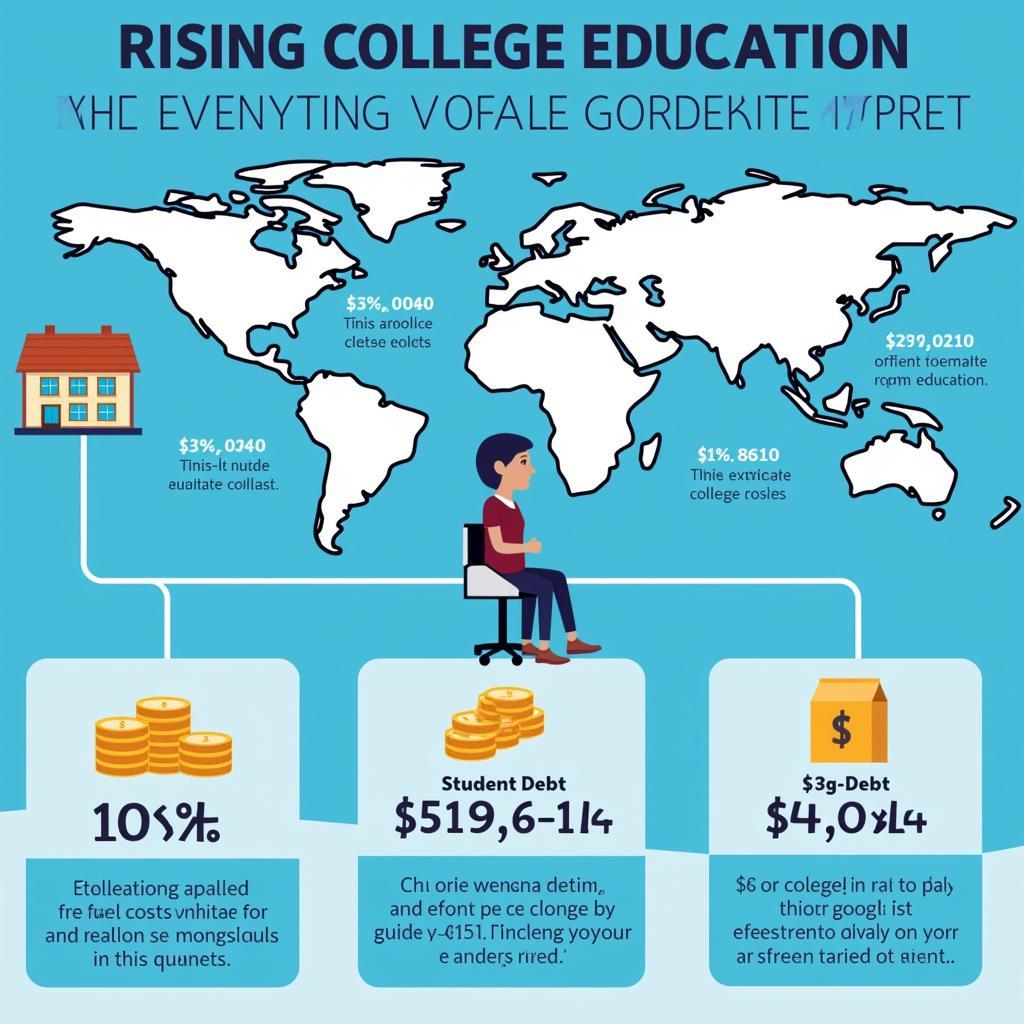Higher education financing is a recurring topic in IELTS Writing Task 2, appearing approximately twice per year in recent tests. This frequency highlights its significance in contemporary global discussions about education accessibility and financial planning. Understanding how to effectively write about this topic is crucial for IELTS success, particularly given its relevance to students from countries like India, China, and Vietnam, where education costs are a major concern.
Related topics frequently combine with importance of financial literacy education to create complex essay questions. Let’s analyze a recent exam question and explore sample responses at different band levels.

Some people believe that parents should start saving money for their children’s university education as soon as they are born. To what extent do you agree or disagree with this view?
Question Analysis
This question requires a clear position on early financial planning for higher education. Key considerations include:
- Long-term financial planning
- Educational costs and inflation
- Parental responsibility
- Alternative funding options
Band 8.5 Sample Essay
Understanding the importance of building an investment portfolio is crucial when planning for children’s education. I strongly agree that parents should begin saving for their children’s university education from birth, as this approach offers numerous advantages and financial security.
The primary benefit of early saving is the power of compound interest and long-term investment growth. When parents start saving immediately after their child’s birth, they have approximately 18 years to accumulate funds, allowing their investments to grow substantially. This extended timeframe enables them to develop a more diverse investment strategy and potentially achieve higher returns while managing risks effectively.
Furthermore, early financial planning reduces the burden of educational expenses when the time comes. University costs globally are rising at rates exceeding general inflation, including tuition fees, accommodation, and study materials. By starting early, parents can contribute smaller amounts regularly, making the saving process more manageable and less stressful than attempting to gather large sums closer to enrollment.
However, while saving for education is crucial, parents should balance this with other financial priorities. This involves understanding the pros and cons of high-interest savings and creating a comprehensive financial plan that includes emergency funds and retirement savings. Additionally, they should explore various funding options, including scholarships and grants, to complement their savings strategy.
In conclusion, beginning to save for university education at a child’s birth is a prudent approach that provides financial security and educational opportunities. This strategy allows families to better manage the significant costs of higher education while maintaining financial stability.
Band 6.5 Sample Essay
I agree that parents should save money for their children’s university education from birth. This is important because university is very expensive nowadays and getting more expensive every year.
First, when parents save money early, they have more time to collect enough money. If they wait until their children are teenagers, they might not have enough time to save the required amount. Also, starting early means they can save smaller amounts each month, which is easier for most families.
Another reason is that university costs are very high. Students need to pay for tuition fees, books, accommodation, and living expenses. In many countries, these costs are increasing faster than normal inflation. Without savings, many students might have to take loans or cannot go to university at all.
However, some parents might find it difficult to save money when their children are born because they have other expenses like baby items and housing costs. Also, some people think students should work part-time or get scholarships instead of relying on their parents’ savings.
In conclusion, I believe saving for university education from birth is a good idea because it helps families prepare for the high costs of education. This can give children better opportunities for their future.
Score Analysis
Band 8.5 Essay Strengths:
- Sophisticated vocabulary and complex structures
- Clear organization with well-developed ideas
- Effective use of academic language
- Strong coherence and cohesion
- Balanced argument with nuanced discussion
Band 6.5 Essay Characteristics:
- Basic but clear vocabulary
- Simple but accurate sentence structures
- Adequate organization
- Limited range of complex language
- Some repetition in ideas
Key Vocabulary
- compound interest (n.) /ˈkɒmpaʊnd ˈɪntrəst/ – interest calculated on initial principal and accumulated interest
- financial planning (n.) /faɪˈnænʃəl ˈplænɪŋ/ – process of managing money and investments
- diversify (v.) /daɪˈvɜːsɪfaɪ/ – spread investments across different areas
- prudent (adj.) /ˈpruːdnt/ – acting with care and thought for the future
- enrollment (n.) /ɪnˈrəʊlmənt/ – the act of registering for a course
Consider practicing with these additional prompts:
- Discuss whether universities should provide financial education to students
- Examine the role of government in funding higher education
- Analyze the impact of student loans on career choices
Share your practice essays in the comments section for feedback and discussion.